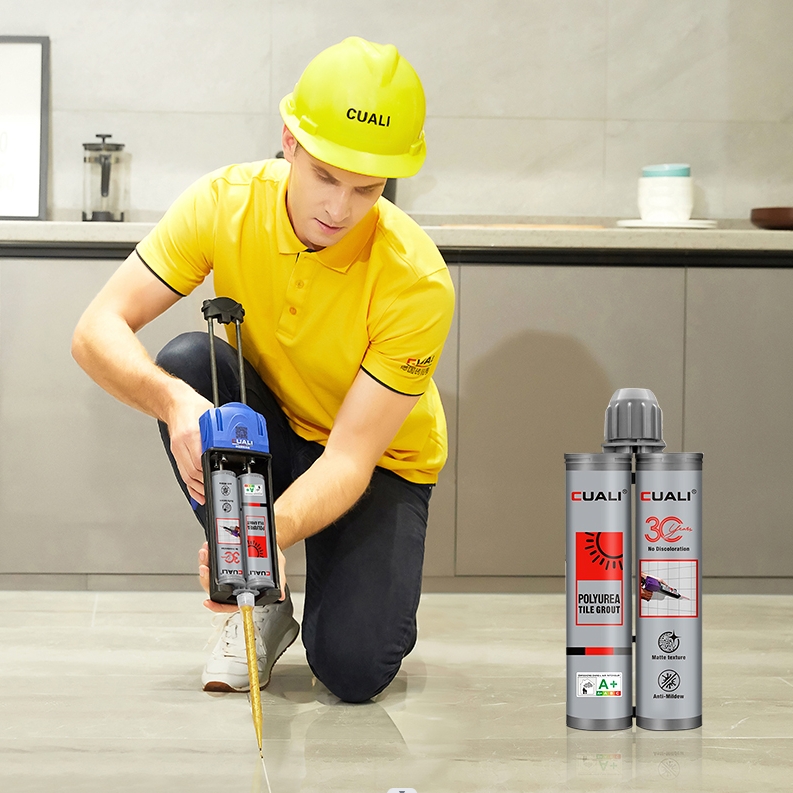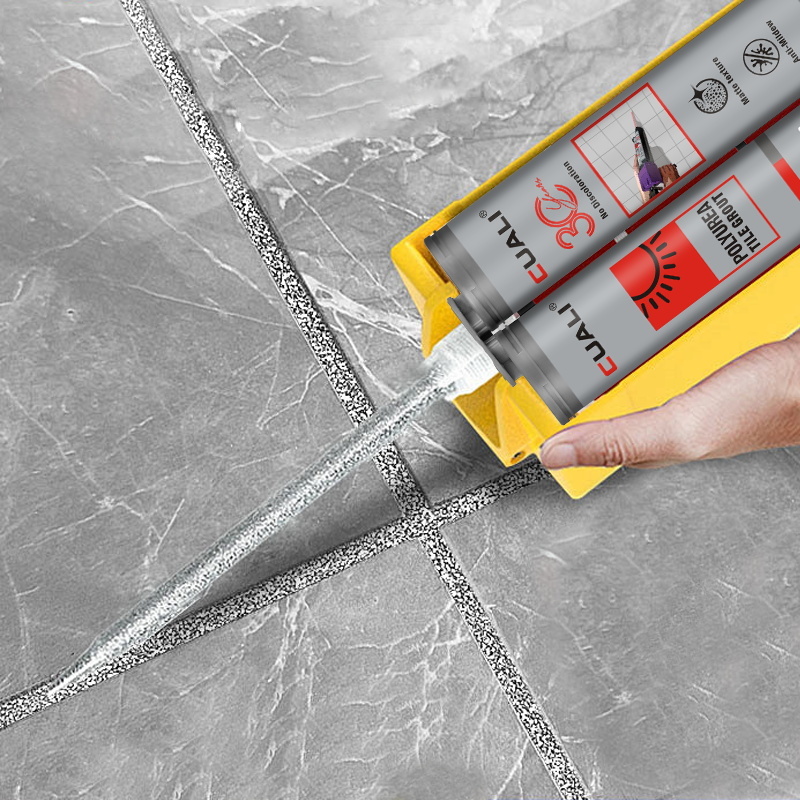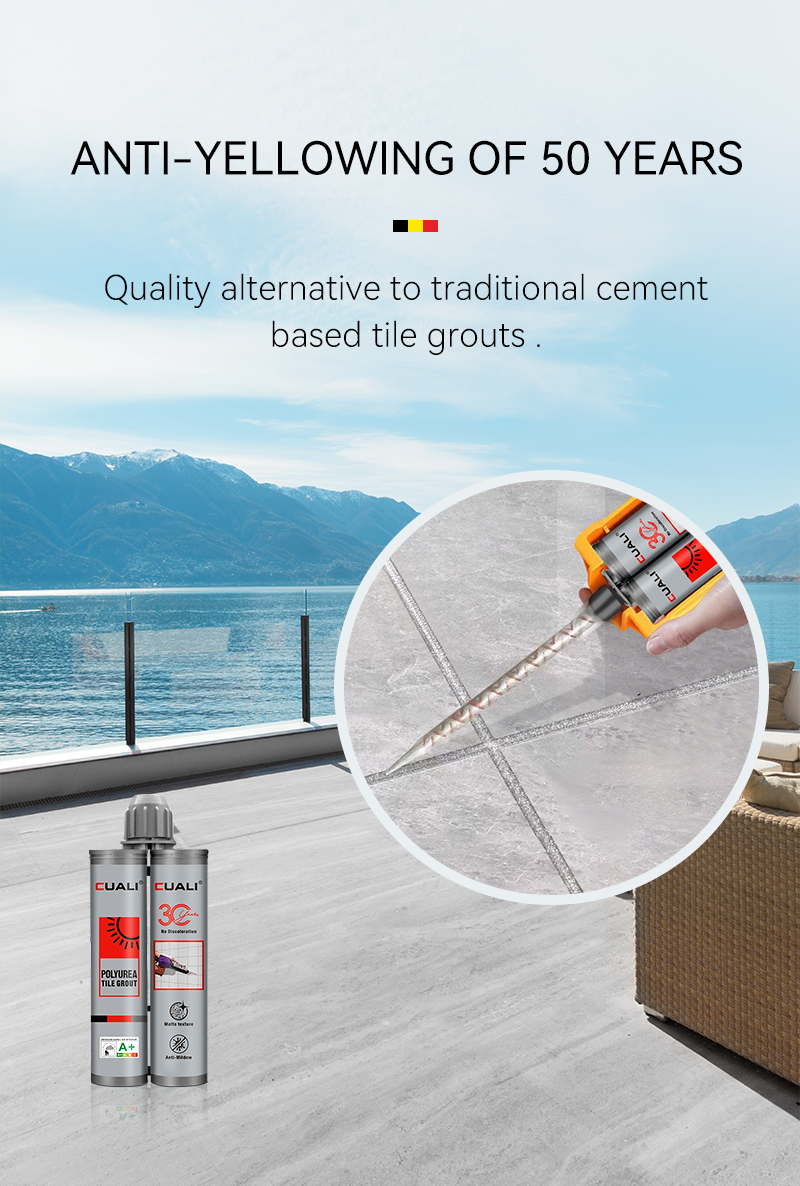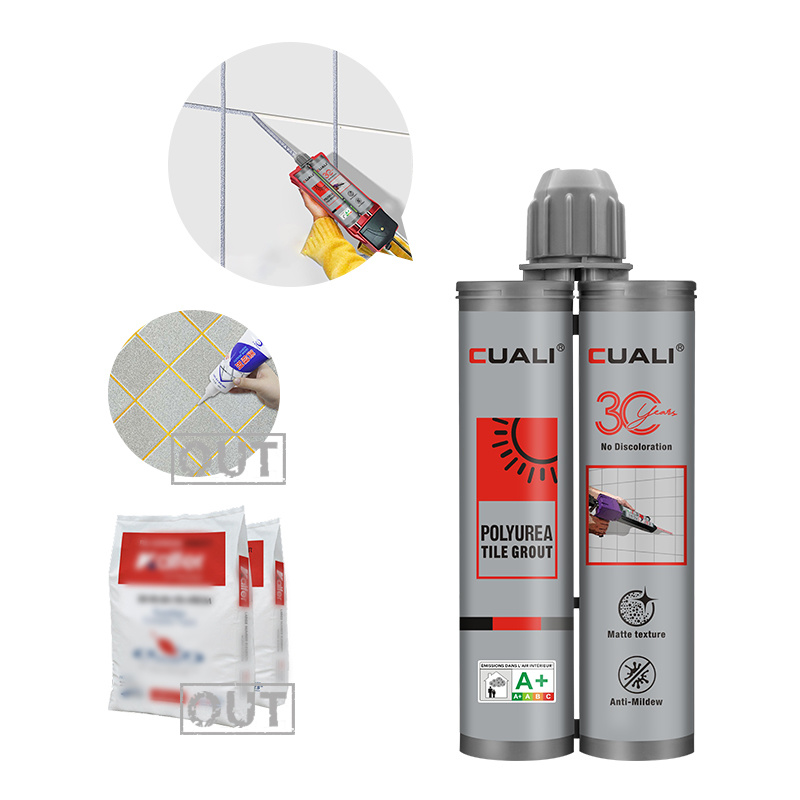
What are the advantages of ceramic tile polyurea grout
The key advantages that make polyurea grout a preferred choice, including superior resistance to yellowing, enhanced durability, better environmental performance, broader application versatility, and simplified maintenance. 
1. Unmatched Resistance to Yellowing
One of the most significant drawbacks of traditional epoxy grout is its tendency to yellow over time, especially when exposed to sunlight, UV rays, or harsh cleaning chemicals. This discoloration not only compromises the aesthetic appeal of tiled surfaces but also requires frequent replacement to maintain a fresh look.
In contrast, polyurea tile grout is engineered with advanced formulations that exhibit exceptional resistance to yellowing. Its molecular structure is highly stable under UV exposure, ensuring that the grout retains its original color for decades. This makes it an ideal choice for sunlit areas such as balconies, patios, and bathrooms with large windows, where epoxy grout would typically fade or discolor quickly.
2. Superior Durability and Longevity
Epoxy grout, while durable, can crack or deteriorate under extreme conditions—such as frequent temperature fluctuations, heavy foot traffic, or exposure to water and moisture over prolonged periods. This limits its lifespan, especially in high-use areas like commercial kitchens, swimming pools, or entryways.
Polyurea grout, on the other hand, boasts remarkable durability. Its flexible yet robust composition allows it to withstand expansion and contraction caused by temperature changes, reducing the risk of cracking. It is also highly resistant to water, chemicals, and abrasion, making it suitable for both indoor and outdoor applications. Whether in humid bathrooms, busy hallways, or outdoor pool decks, polyurea grout maintains its integrity, significantly extending the lifespan of tiled surfaces compared to epoxy.
3. Enhanced Environmental and Safety Benefits
Traditional epoxy grout often contains volatile organic compounds (VOCs), amines, and other harmful chemicals that can emit fumes during and after installation. These fumes not only pose health risks to installers and occupants but also contribute to indoor air pollution.
Polyurea tile grout addresses these concerns with a more eco-friendly profile. Most high-quality polyurea grouts are low in VOCs, free from toxic amines, and do not release harmful fumes. This makes them safer for use in enclosed spaces like homes, schools, and hospitals, aligning with the growing demand for sustainable and health-conscious building materials. Additionally, their long lifespan reduces the need for frequent replacements, minimizing waste and environmental impact.
4. Versatility Across Applications
Epoxy grout, while versatile, has limitations in extreme environments. For example, it may struggle in areas with constant exposure to sunlight, heavy moisture, or harsh chemicals. Its rigid nature also makes it less suitable for surfaces that experience slight movement, such as wooden subfloors.
Polyurea grout breaks these barriers with its wide-ranging versatility. It performs exceptionally well in both indoor and outdoor settings, from residential bathrooms and kitchens to commercial spaces like restaurants and gyms. Its flexibility allows it to adapt to minor substrate movements, making it compatible with various surfaces, including concrete, wood, and even some types of stone. This adaptability, combined with its resistance to diverse environmental stressors, expands its application scope far beyond that of traditional epoxy grout.
5. Simplified Maintenance and Long-Term Cost Savings
Epoxy grout, despite its initial strength, can require regular maintenance. Its susceptibility to yellowing and staining means homeowners and businesses often need to invest in specialized cleaners or even re-grouting to keep surfaces looking fresh.
Polyurea grout reduces long-term maintenance efforts. Its non-porous surface resists stains from dirt, oil, and grime, making it easy to clean with standard household cleaners. The absence of yellowing also eliminates the need for frequent touch-ups or replacements. While polyurea grout may have a higher upfront cost than epoxy, the savings in maintenance, repairs, and replacements over time make it a cost-effective choice in the long run.
Summary:
Polyurea tile grout’s rising popularity is driven by its clear advantages over traditional epoxy grout: superior resistance to yellowing, enhanced durability, better environmental safety, broader application versatility, and lower long-term maintenance costs. As more homeowners and professionals recognize these benefits, polyurea grout is set to become the standard for high-quality, long-lasting tile installations.
Time:
2025-07-08
More News
